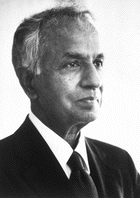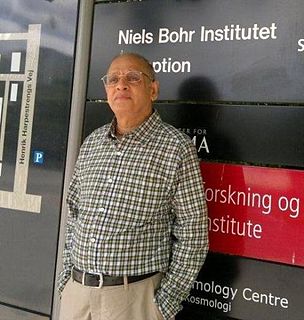A Quote by Celia Green
What appear to be the most valuable aspects of the theoretical physics we have are the mathematical descriptions which enable us to predict events. These equations are, we would argue, the only realities we can be certain of in physics; any other ways we have of thinking about the situation are visual aids or mnemonics which make it easier for beings with our sort of macroscopic experience to use and remember the equations.
Quote Topics
Related Quotes
Poetry is a sort of inspired mathematics, which gives us equations, not for abstract figures, triangles, squares, and the like, but for the human emotions. If one has a mind which inclines to magic rather than science, one will prefer to speak of these equations as spells or incantations; it sounds more arcane, mysterious, recondite.
One of the most exciting things about dark energy is that it seems to live at the very nexus of two of our most successful theories of physics: quantum mechanics, which explains the physics of the small, and Einstein's Theory of General Relativity, which explains the physics of the large, including gravity.
This is often the way it is in physics - our mistake is not that we take our theories too seriously, but that we do not take them seriously enough. It is always hard to realize that these numbers and equations we play with at our desks have something to do with the real world. Even worse, there often seems to be a general agreement that certain phenomena are just not fit subjects for respectable theoretical and experimental effort.
Everything, however complicated - breaking waves, migrating birds, and tropical forests - is made of atoms and obeys the equations of quantum physics. But even if those equations could be solved, they wouldn't offer the enlightenment that scientists seek. Each science has its own autonomous concepts and laws.
In quantum mechanics there is A causing B. The equations do not stand outside that usual paradigm of physics. The real issue is that the kinds of things you predict in quantum mechanics are different from the kinds of things you predict using general relativity. Quantum mechanics, that big, new, spectacular remarkable idea is that you only predict probabilities, the likelihood of one outcome or another. That's the new idea.
It seems that every practitioner of physics has had to wonder at some point why mathematics and physics have come to be so closely entwined. Opinions vary on the answer. ..Bertrand Russell acknowledged..'Physics is mathematical not because we know so much about the physical world, but because we know so little.' ..Mathematics may be indispensable to physics, but it obviously does not constitute physics.
Any high school boy or girl knows how to calculate the force with which a stone he or she throws will hit someone in the face, but nothing in those equations they use will tell them whether or not to throw it...To solve the problem of values we must know what is valuable. Consciousness is the most valuable commodity...To bring values into science, we need to connect science with what is valuable consciousness.
I have tried to read philosophers of all ages and have found many illuminating ideas but no steady progress toward deeper knowledge and understanding. Science, however, gives me the feeling of steady progress: I am convinced that theoretical physics is actual philosophy. It has revolutionized fundamental concepts, e.g., about space and time (relativity), about causality (quantum theory), and about substance and matter (atomistics), and it has taught us new methods of thinking (complementarity) which are applicable far beyond physics.
Even if we ignore the 'non-theoretical' knowledge which we acquire through experience (such as the knowledge of what something tastes like) and concentrate on theoretical knowledge, there is no good reason to think that physics can literally give the theory of everything. Here I want to be really pedantic. Although everything may be subject to physical law, not everything can be explained or described in physical terms. Physics has literally nothing to say about society, morality and the mind, for example - but of course these are parts of 'everything'.



































